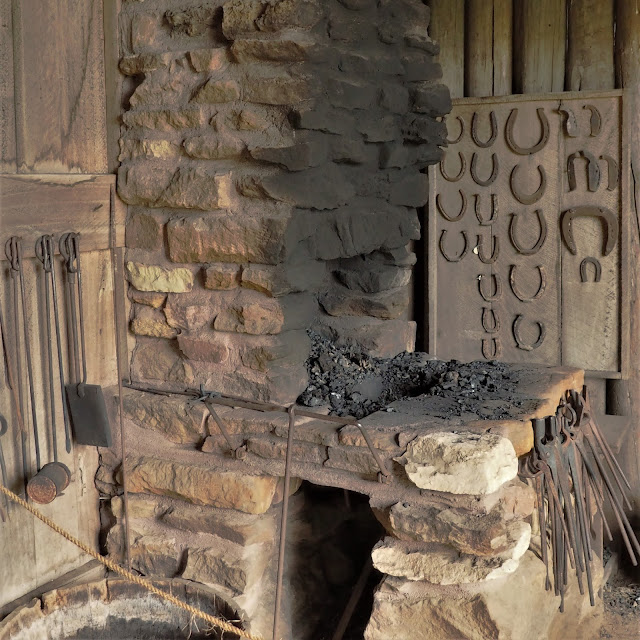Edgar watched his mother moving around the stove. He glanced at the bluish dishes hung from the wall and at the figure of the farmer on the shelf, all brought over from the old country. The chair creaked into the silence as he jerked up his hand to scratch his forehead. No one else moved.
"I must finish the shoe, Father." He rose
unsteadily, and went back to the shop. All of this was new to him.
And he knew Gerrit and Peter, although they were
older than he, for they too, he remembered, had sat here on these stools and
barrels when they were younger, and waited with their fathers for shoes or
shares. In recent years they had been well-known in the little town, for
they were fine ball players, even heroes to the younger children. As they
had grown older, the eyes of the village had seen their wagons standing outside
the tavern across the street from the shop. It was no secret that they
took out American girls. Their behavior had grown into something of a
scandal in the otherwise settled community. Now they would never go to
the war they had dreamed of. Edgar poked at the fire which had already
lost its force.
His father returned. His silence was still
conspicuous. He took up the hammer and returned to the anvil. With
his left hand, he drew a piece of glowing iron from the fire, and began, at his
usual pace, to shape it into a shoe. Finally he spoke, dropping the
hammer to his side.
"Edgar," he said, "you know the
boys. How do they live?"
Edgar kept pushing the wheel. "I don't
know, Father."
Side by side they worked for several hours; they
had spoken nothing else of Gerrit and Peter.
It was just after dinner that Monday when Cornelius
Den Boer made his usual entrance at the shop. There was something
different this time, Edgar realized, for the old man's thick white eyebrows
were drawn low and deep, adding even more wrinkles around the corners of his
eyes. Nor were there any stories of Holland, or of the immigrants who set
first homesteads in the Oostburg area. He sat slowly on an empty barrel
near the door, after the conventional nod of greeting.
“You know, Henry?" His voice was harsh and
raspy.
"Ja." Edgar stopped his work, looking at
his father who stared at the guest.
"The Lord took them, you know, for a
purpose." There was no spark of his usual jovial nature. He
unbuttoned his black top coat as if he had just come in from the cold.
"Ja," came the reply, "He did."
"We can have little hope for their
salvation." Den Boer pulled a stained yellow pipe from the pocket of his
old black coat. He stuck the pipe somewhere in the thickly bearded jaw
and struck a match across the rough cooling tank.
"We must teach our children to learn from
this." The little flame illuminated the drawn face under the black,
wide-brimmed hat. A huge mass of pale-gray smoke rose, then hung like a
rain cloud about his head.
"We worship a righteous God, Den Boer, but we
cannot judge these boys or the state of their souls so easily. We don't
always know His will."
"There was no Christian life there,
Henry. We know that, ja? They swam on the Sabbath. There is
only hope for us if here we see the hand of the Lord."
Edgar, like his father, did not stop working.
He expected to be excused from the shop at any moment, but as long as he did
remain, he made a pretense of being quietly occupied at the wheel.
"Cornelius, the Lord always works in these
mysterious ways." Edgar's father was slowly forging a wagon hitch.
The pace revealed his respect for Cornelius Den Boer.
"Our children are losing the faith." Den
Boer puffed gently at his pipe. "ja, I been afraid more than once of
things like this."
Edgar paused momentarily and listened
intently. He did not face the old man.
"The Lord will punish us and our children for
our sin. We do not obey the commandments as He wants us to yet. He
shows us His wrath, and He has today, to teach us to believe in Him and obey
His law."

No comments:
Post a Comment